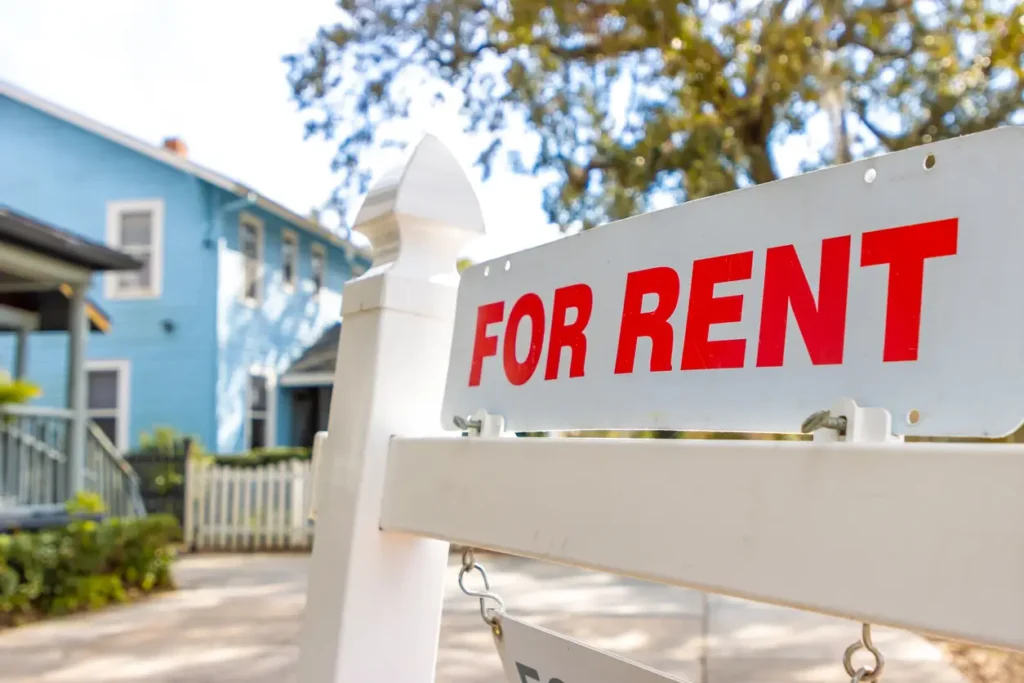Overcoming Rental Property Woes– Navigating the world of rental properties can be a rollercoaster ride, especially when cash flow issues arise. I’ve seen firsthand how quickly a negative cash flow can turn a promising investment into a financial burden. When expenses pile up, and unexpected costs like evictions emerge, it can feel overwhelming.
Many landlords overlook the potential for additional income through simple strategies, like charging for parking or storage. These small changes can make a significant difference in your cash flow. If you’re feeling the pinch, understanding how to cash out fast can be a game-changer. Let’s dive into some practical solutions to tackle those rental property woes head-on.
Overcoming Rental Property Woes- Dealing with rental property challenges can be overwhelming. Whether you’re struggling with difficult tenants, costly repairs, or simply tired of the hassle, Bobby Buys Homes offers a fast and simple solution.
When you sell your rental property for cash, you avoid the lengthy and stressful process of dealing with tenants or managing expensive fixes. Bobby Buys Homes makes it easy for you to move on without worrying about realtor fees or repairs.
No matter the condition or situation of your property, Bobby Buys Homes will provide a fair cash offer and a quick closing, helping you overcome rental property woes with ease.
Ready to sell? Contact Bobby Buys Homes today for a stress-free experience!

Common Rental Property Challenges
Overcoming Rental Property Woes- Managing rental properties comes with several hurdles, which can impact cash flow and profitability. Addressing these challenges effectively helps maintain a stable rental operation.
Overpaying for Properties
Overpaying for properties frequently leads to financial struggles. It’s crucial to conduct thorough market research and property evaluations before making a purchase. Analyzing comparable properties in the area can prevent paying above market value. Utilizing tools like property appraisal services or market analysis reports ensures I make informed decisions. Overvalued properties often yield disappointing returns, so keeping acquisition costs in check is essential.
Attracting Quality Tenants
Attracting quality tenants directly influences rental income and property upkeep. Establishing clear tenant criteria helps in screening applicants effectively. I focus on verifying income, assessing job stability, and contacting previous landlords for references. Utilizing online screening tools increases efficiency and identifies potential red flags quickly. Offering competitive rental rates and highlighting unique property features can also attract dependable tenants, minimizing vacancies and turnover costs.
Maintenance and Repair Issues
Maintenance and repair issues create significant distractions, impacting profitability. Staying proactive with preventive maintenance schedules helps avoid unexpected repair bills. I develop a checklist for regular inspections to address potential issues early. Documenting maintenance activities aids in tracking repairs and ensuring compliance with local regulations. Encouraging tenants to report problems promptly allows for quick resolutions, preventing minor issues from escalating into costly repairs.
Strategies to Improve Cash Flow

Improving cash flow requires targeted strategies that focus on maximizing rental income while minimizing costs. Here are effective methods I implement to enhance financial performance in rental properties.
Adjusting Rental Rates
I review and adjust rental rates regularly to stay competitive in the market. Analyzing comparable properties within the neighborhood provides valuable insight into current market trends. When my rental rates lag behind, a modest increase can significantly boost income. Communicating these adjustments transparently helps maintain trust with tenants. Highlighting property upgrades or amenities can also justify rate changes and foster tenant understanding.
Implementing Efficient Property Management
I ensure I engage a competent property manager, as their expertise directly affects rental income and tenant satisfaction. A good property manager oversees maintenance costs effectively while providing timely tenant communication. Their ability to market the property can attract quality tenants more efficiently. Investing in quality property management services yields long-term benefits, enhancing overall cash flow.
Regular Maintenance and Upkeep
I prioritize routine maintenance and upkeep to prevent costly repairs down the line. Scheduling regular inspections allows me to identify potential issues before they escalate. Performing preventive maintenance tasks, such as changing filters or inspecting plumbing, ensures that the property remains in good condition. I find that properties maintained well attract responsible tenants willing to pay fair market rates.
When to Consider Cashing Out

Deciding when to cash out on a rental property involves careful consideration of various factors. Recognizing the right moment can help maximize financial returns and minimize losses.
Analyzing Market Conditions
Analyzing current market conditions provides crucial insight into whether to cash out. Observing local real estate trends, such as rising property values or increased buyer demand, indicates a favorable time to sell. For instance, if properties in my area are appreciating at over 5% annually, this could signal a profitable exit point. Conversely, a market downturn, marked by declining prices or higher vacancy rates, may prompt me to reconsider holding onto the property until conditions improve. Comprehensive market research empowers me to make informed decisions based on empirical data.
Evaluating Financial Implications
Evaluating the financial implications of cashing out is essential for effective investment management. A thorough analysis of all costs, including outstanding mortgage balances, taxes, potential capital gains, and selling expenses, clarifies the financial outcome of a sale. If cashing out provides a return on investment that surpasses other avenues, it becomes a compelling option. I must also compare current rental income against anticipated future earnings, factoring in property appreciation and ongoing maintenance costs. By calculating potential profits and losses, I ensure that the decision aligns with my financial goals.
Exploring Selling vs. Renting
Exploring the decision to sell versus rent is a critical part of my strategy. Selling may offer immediate liquidity, useful for reinvesting in more lucrative opportunities or covering personal expenses. On the other hand, renting can generate consistent cash flow, particularly if the asset’s location and condition support long-term value. I consider my current financial situation, market stability, and my personal investment philosophy. If I anticipate sustained rental demand and can maintain a profit, holding onto the property becomes more attractive. Analyzing the pros and cons of each approach enables me to align my investment strategy with my overall objectives.
Alternatives to Cashing Out Fast
Exploring alternatives can provide a more strategic approach to managing rental property finances without rushing into cash-out refinancing. Here are some effective options to consider.
Refinancing Options
Utilizing refinancing options can provide lower interest rates or better loan terms. This can help reduce monthly payments or free up cash flow. A cash-out refinance allows accessing equity while maintaining ownership. Alternatively, rate-and-term refinancing can lower your interest costs. Comparing options with different lenders can reveal the best fit for financial goals, often resulting in immediate cash savings.
Partnering with Investors
Forming partnerships with investors can alleviate financial pressure. Joint ventures allow for shared expenses and risks while maintaining control over the property. For instance, bringing in an investor for a percentage of equity can provide necessary capital for property improvements or cash flow stabilization. Clear agreements outline responsibilities and profit-sharing, ensuring mutual benefit.
Utilizing Government Programs
Exploring government programs can offer financial assistance and incentives for property owners. Programs like the Federal Housing Administration (FHA) loans provide lower down payment options and favorable terms for refinancing. Tax credits or grants for specific property improvements can reduce costs significantly. Investigating local or state programs may reveal additional resources available to enhance cash flow and property value.
Conclusion
Navigating the challenges of rental property ownership can be daunting but it’s essential to stay proactive. By exploring diverse income opportunities and maintaining your property, you can significantly improve your cash flow.
When considering cashing out, weighing your options carefully is crucial. Whether you decide to sell or hold on for rental income, aligning your strategy with your financial goals will set you up for success.
Remember that informed decisions based on market analysis and proactive management can make all the difference. With the right approach, you can turn rental property woes into profitable opportunities.
Need a quick sale for your rental property? Bobby Buys Homes is here to help! Call 916-908-5247 today.